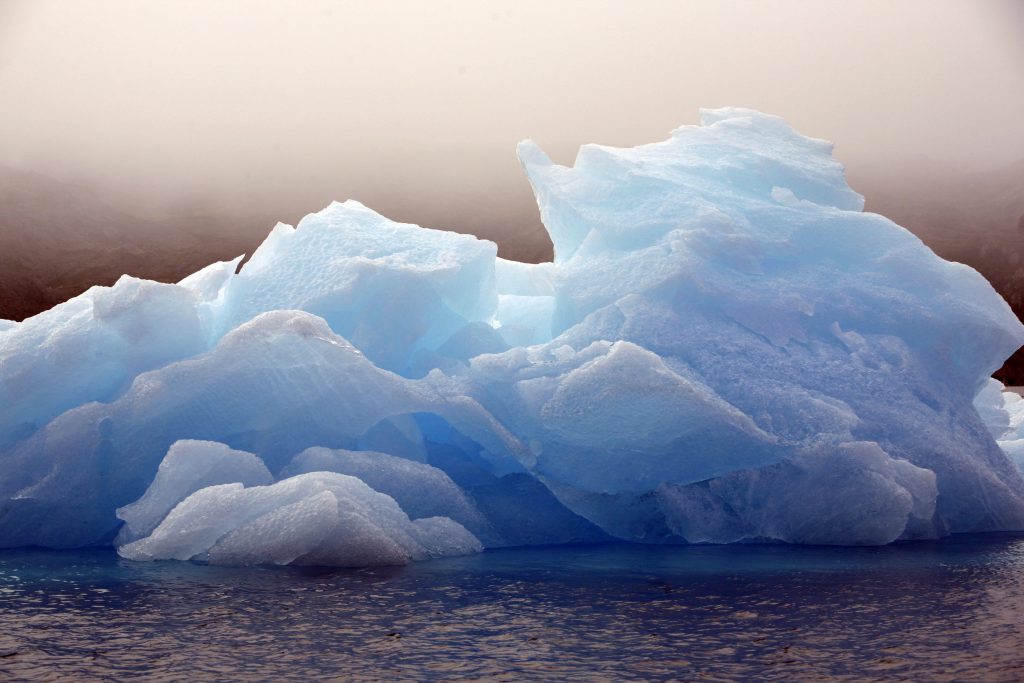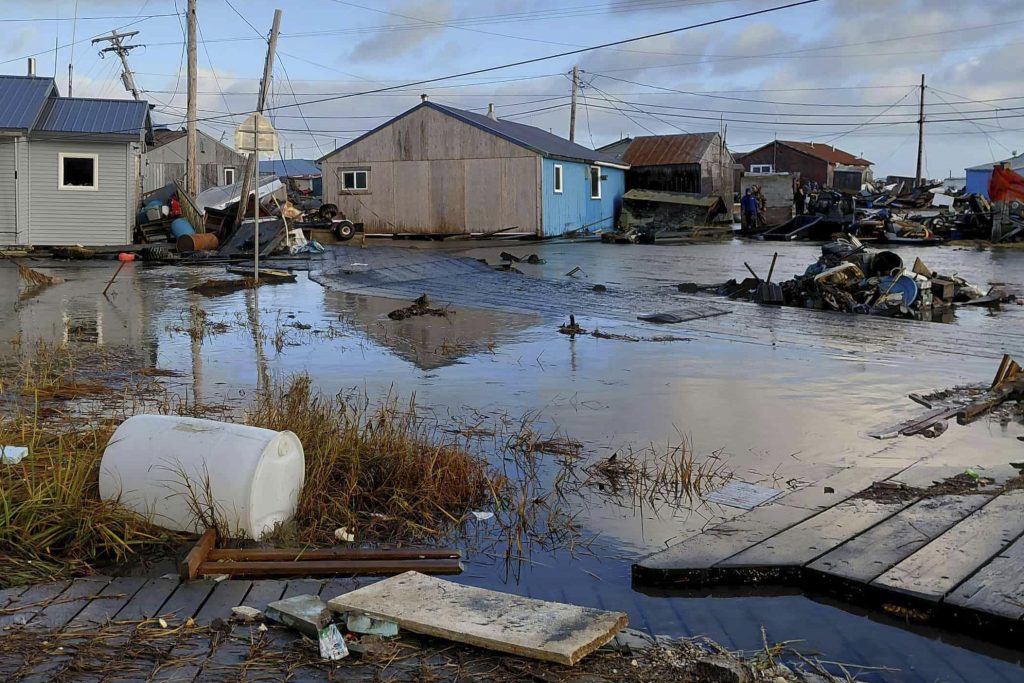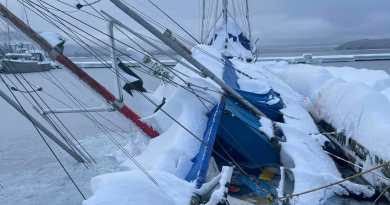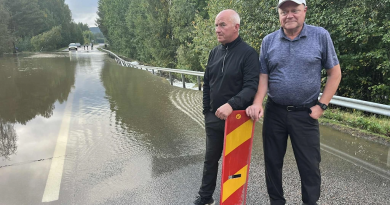How the Arctic has been ‘pushed & triggered’ into climate extremes: paper

As the Arctic warms at an unprecedented rate, a new scientific review outlines how events once considered rare — from massive heat waves to record ice melt — are now becoming routine.”
Published on Tuesday in the journal Nature Reviews Earth & Environment, the review looked at studies on Arctic climate extremes. As they reviewed the data, the authors found that since around 2000, weather and climate extremes have systematically increased in both frequency and intensity across the region.

“This occurrence of the massive extreme events can be explained by the “pushing and triggering” mechanism,” Xiangdong Zhang, a research professor at the North Carolina Institute for Climate Studies and lead author of the paper told Eye on the Arctic in an email exchange.
“The warming effect destabilizes the system to a threshold. With the same magnitude of the internal variability, the climate system becomes unstable and results in more frequent and stronger variation anomalies and a shift of the baseline climate.”
System-wide shift after 2000
The review found that this shift is found across the North. Air and ocean temperatures are up, sea ice is down, and even the Greenland Ice Sheet is melting faster — all indicators of the kinds of sweeping changes noted since the turn of the century.
By comparing the Arctic today with the region’s baseline in the 20th century, the review found that once-rare extremes now happen far more often — jumping from roughly 7 per cent before 2000 to as high as 90 per cent afterward.
To illustrate what that shift looked like on the ground, Zhang said one early example came in the mid-2000s, when a cluster of record-breaking extremes signaled the Arctic’s transition into a new climate state:
- Winter 2005–06: extreme atmospheric heat wave swept North Atlantic Arctic
- Winter 2005–06: surge in North Atlantic Ocean heat transport sent unusually warm water northward
- Summer 2007: Arctic sea ice extent dropped to unprecedented lows
- Summer 2007: powerful marine heat wave developed in Arctic waters
- Summer 2007: Greenland Ice Sheet experienced widespread surface melt
“The magnitude of all these events is largely beyond historical records before that time,” Zhang said.
The review describes long-term Arctic amplification — the region’s rapid warming — as the push that makes the climate more vulnerable, while shorter-term variability is the trigger that can now drive major environmental impacts.
The authors warn these trends are likely to keep accelerating as the Arctic edges closer to potential tipping points in the climate system.
“What surprised me is the step-change around the beginning of the 21st century,” Zhang said.
“It can be characterized by the systematic occurrence of the extreme events mentioned above. It can also be seen from the rapid changes in the atmospheric circulation pattern, which unprecedentedly enhanced wind blows from south to north, increasing heat transport into the Arctic in both the atmosphere and ocean.”
Communities unprepared for extremes
While long-term Arctic warming is well known, Zhang said the rise in extreme events has “not been well recognized and understood.”

“The community has not been well prepared for extremes,” Zhang said. “With the atmosphere and ocean warming and sea ice decreasing, storms get stronger and more frequent. Strong storms produce strong wind, causing wave surge and coastal flooding.”
He pointed to Storm Halong, which struck western Alaska around October 12, as a recent example. “It caused a rapid increase of sea level and then coastal flooding,” he said.
“The record-high damage may take years to recover as reported by many news articles.”
Preparing for a volatile Arctic
To adapt, Zhang said researchers and planners will need to focus on prediction and resilience.
“For better planning, more research is needed to build up evidence-based references and improve understanding of the processes and mechanisms responsible for the occurrence and intensity of extremes,” he said.
“This will increase security for the community, economy, and so on.”
Comments, tips or story ideas? Contact Eilís at eilis.quinn(at)cbc.ca
Related stories from around the North:
Canada: Wildfire seasons in the N.W.T. unlikely to ease off by next century, study finds, CBC News
Finland: Flooding in Finland is getting worse, new climate report says, Yle News
Greenland: Ocean currents may be driving mercury pollution in Arctic, says study, Eye on the Arctic
Iceland: Resilience, recovery prioritized in Iceland report on Grindavik evacuation, Eye on the Arctic
Norway: Re-freezing the Arctic is costly and dangerous, The Independent Barents Observer
Russia: New NOAA report finds vast Siberian wildfires linked to Arctic warming, The Associated Press
Sweden: Major floods cause train issues in northern Sweden, Radio Sweden
United States: Officials work to stabilize typhoon-damaged Alaska communities before winter freeze, The Associated Press



